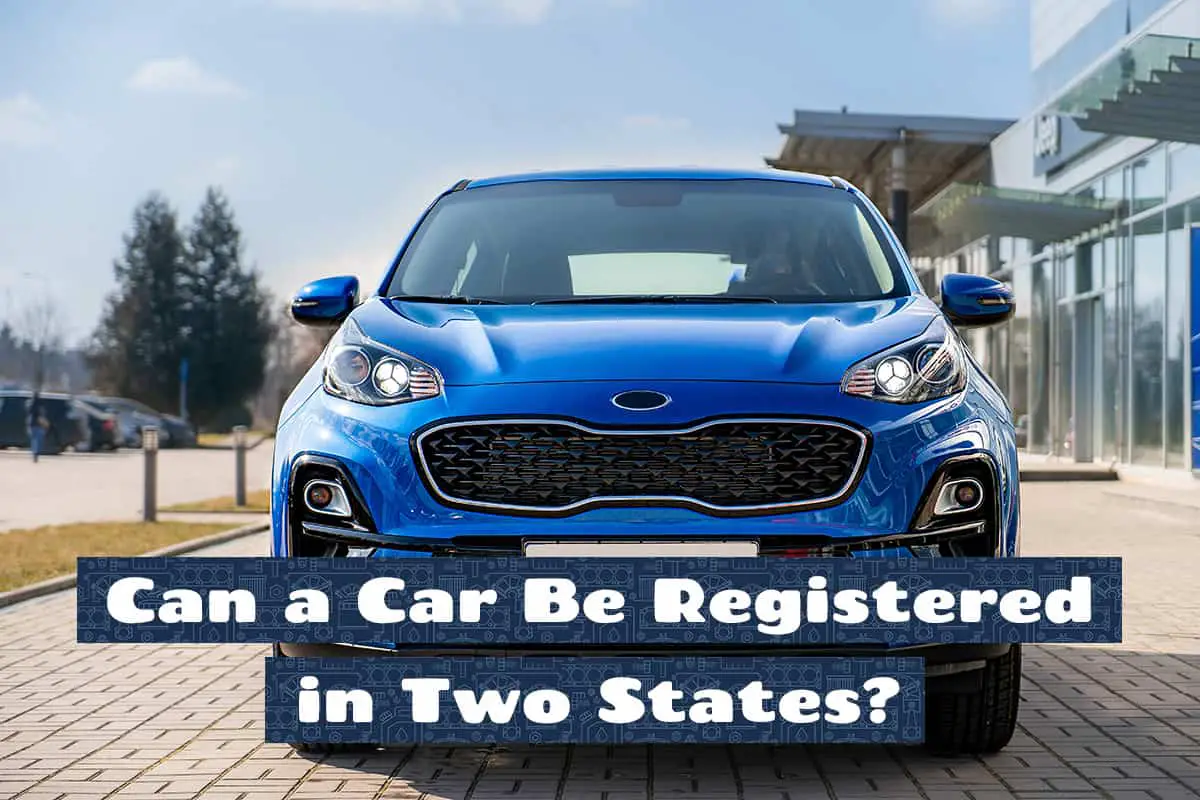Car registration is a fundamental requirement. It’s a legal necessity that connects a car to its owner, allowing authorities to track the vehicle for various purposes. The question of whether a car can be registered in two states has become more relevant, especially for those who own residences in different states, run businesses across borders, or are involved in other unique scenarios. So, you can register your vehicle in multiple states?
You generally cannot register a car in two states at the same time. Registration in one state usually requires that the vehicle be principally garaged in that state, making dual registration legally challenging. However, for certain cases, dual registration is possible, but you will need to pass inspections in both states.
This article will cover the basics of vehicle registration and explain the intricacies of registering a car in multiple states.
What Does Vehicle Registration Mean?

Vehicle registration is a legally mandated process that associates a car with its owner. It is a multi-step process that usually begins when purchasing a new or used car. Here’s how it works:
- Submission of Documents: The owner must provide essential documents, including proof of ownership, identification, vehicle identification number (VIN), and proof of insurance.
- Inspection and Verification: In some states, a vehicle must pass safety and emissions inspections. These assessments ensure that the car meets state regulations concerning safety and environmental standards.
- Payment of Fees: Vehicle registration requires the payment of specific fees. These can vary based on factors like the car’s age, make, model, weight, and the state’s specific requirements.
- Receipt of License Plate and Registration Card: Once the process is complete, the owner receives a license plate and a registration card. These must be displayed on the vehicle and carried when driving.
Why Vehicle Registration is Necessary
There are several reasons why you need to register your vehicle:
- Legal Compliance: Registration ensures that vehicles on the road comply with legal requirements such as safety standards and emissions regulations.
- Identification of Ownership: It establishes a clear link between the vehicle and its owner, making transactions like buying, selling, or transferring ownership more transparent.
- Law Enforcement: Registration aids law enforcement in tracking stolen vehicles, identifying vehicles involved in accidents or crimes, and enforcing traffic laws.
Can a Car Be Registered in Two States?
Legally, registering a car in two states simultaneously is usually not permissible. Here’s why:
- State Residency Requirements: Most states require that the car be principally garaged in the state where it’s registered. Dual registration can conflict with these requirements.
- Insurance Compliance: Insurance regulations are often linked to the state of registration. Having dual registration may cause complexities with adhering to different insurance laws.
- Tax Regulations: Registering in two states may lead to conflicting tax obligations, as each state may have its unique taxation system for vehicles.
What Scenarios Allows You to Register a Car in Two States?

While it is generally required that a car be registered in the state where it is primarily used or garaged, there are scenarios and considerations that may appear to allow dual registration.
- Living Near State Borders: If you live near a state border and frequently commute between two states, you might wonder if dual registration is possible or necessary.
- Multiple Residences: If you have residences in two states, you might assume that dual registration is appropriate for a car used in both locations.
- Business Purposes: If a vehicle is used for business across multiple states, this could lead to questions about dual registration.
- Temporary Relocation: Temporary relocation for work, study, or other reasons might create a situation where dual registration seems logical.
Which States Allow Non-Resident Vehicle Registration?
In the US, there are only 11 states that allow non-residents to register their vehicle.
| State Name | Requirements |
| California | Non-residents allowed to register if the vehicle is based in California or mainly used on California highways. |
| Colorado | No in-state license required for vehicle registration
Proof of Colorado insurance needed |
| Delaware | No in-state license needed
Must provide two documents proving Delaware residence Vehicle must pass inspection |
| Florida | Non-residents can temporarily register vehicles under certain conditions, such as temporary employment or military deployment. |
| Indiana | No in-state license required
Two documents with Indiana address needed |
| Kentucky | No in-state license needed
Photo ID and proof of Kentucky car insurance required (exceptions for active-duty military) |
| Maine | No in-state driver’s license required
Must bring out-of-state title, registration, and Maine insurance card |
| Massachusetts | Must prove lawful presence in the U.S.
An unexpired license from another state or other lawful presence documents accepted |
| New York | Non-residents can register out-of-state vehicles by mailing application and necessary documents to the New York DMV. |
| North Dakota | Non-residents working in state can obtain temporary vehicle registration, valid for 6 or 12 months.
Must maintain home state registration |
| South Dakota | Non-residents can register vehicles
Need original out-of-state title, copy of driver’s license, Social Security number, registration application |
FAQs
1. How does dual registration affect insurance?
Dual registration, or registering a car in two different states, can significantly complicate insurance matters. Generally, insurance policies are aligned with the state where the car is primarily used or garaged. Attempting to register the same vehicle in two states may create inconsistencies between the registration and insurance policy.
If you were to register your car in two states, you would need to insure it in both. In addition, you would also need to pass emissions test in both states before registration is granted.
2. Can businesses register a vehicle in multiple states?
Businesses are usually required to register a vehicle in the state where it is primarily used. However, businesses that operate vehicles across multiple states may have unique considerations. For example, commercial vehicles that travel extensively across state lines might be subject to specific regulations, taxes, and permits for each state they operate in.
It doesn’t necessarily mean the vehicle is registered in multiple states, but rather that the business complies with the laws and requirements of each state where the vehicle is used. If a business believes it needs to register a vehicle in multiple states, it should consult with legal and registration professionals.






